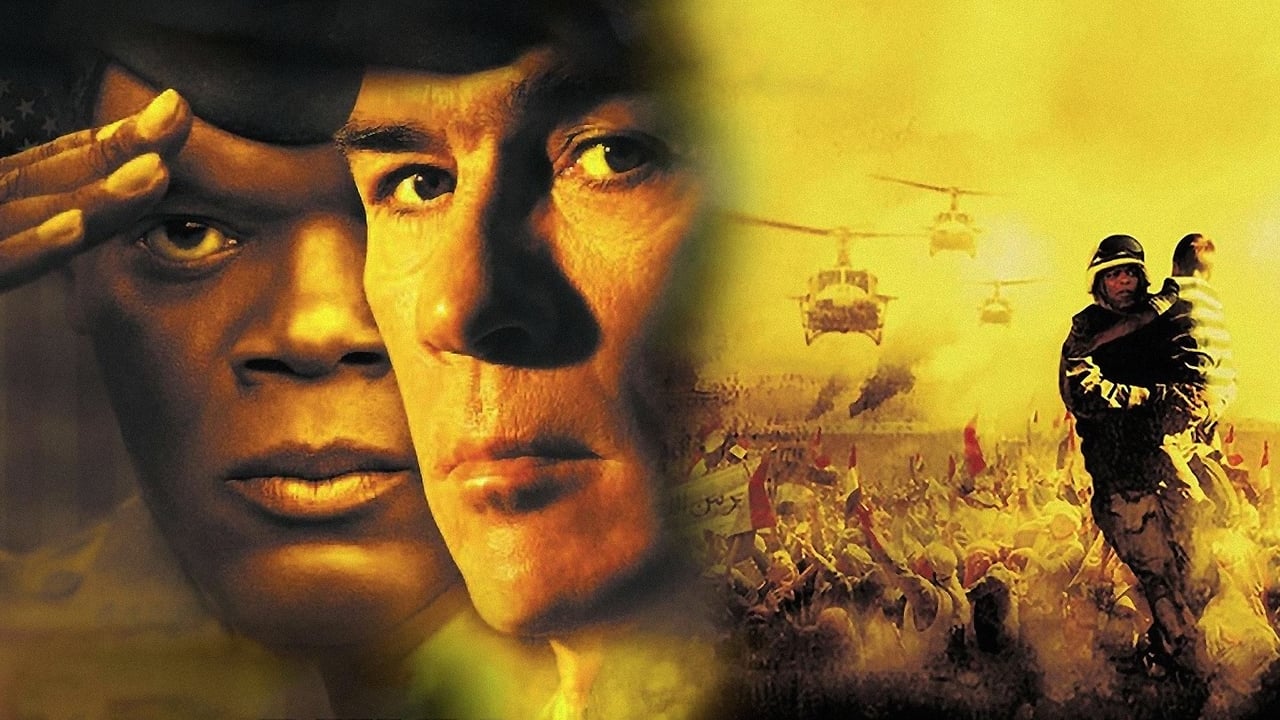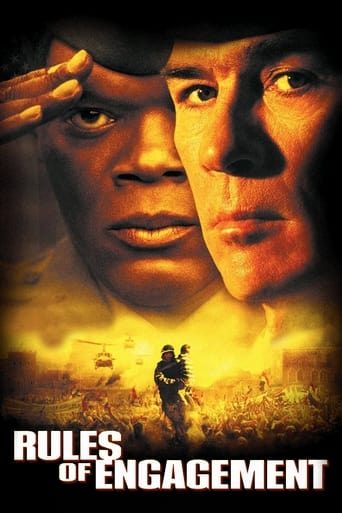

A Masterpiece!
... View MoreEntertaining from beginning to end, it maintains the spirit of the franchise while establishing it's own seal with a fun cast
... View MoreIt is an exhilarating, distressing, funny and profound film, with one of the more memorable film scores in years,
... View MoreIt is interesting even when nothing much happens, which is for most of its 3-hour running time. Read full review
... View MoreShould be viewed by anyone considering a career in the service. Great performances by a coupl of our best actors. Sadly the topic is an all too familiar one of the government selling out the men and women who serve it.
... View MoreThis is a pre-9/11 film which raises questions on the rules of engagement in civilian/urban zones as well as combat/war fields.The backdrop is the a US Marines-led evacuation of the Yemen embassy which is surrounded by protesters and is facing sniper attacks.The conduct of Samuel Jackson,the colonel leading the operation is called into question .Its alleged that his blood-mindedness had resulted in the slaughter of 83 peaceful protesters.The director had Tommy lee jones at his disposal to make a superb courtroom drama out of it.But somehow the trial seems very low key and not engaging enough.Guy pearce,as the prosecution attorney makes a mockery of the whole show with his affected performance.Maybe he was trying to copy tom cruise's performance in A FEW GOOD MEN,but he didn't succeed.Even tommy lee jones seems surprisingly off colour .Samuel Jackson does well but not enough to save the flick.The film is doomed,especially in the post 9/11 era because the rules of engagement have changed,if not officially,at least on ground.One better appreciates under how much pressure do state forces operate versus the non-state actors.The margin for error is zero,and the opportunity costs are very high.Middle East is no longer given any benefit of doubt as far as restraint,democracy,fair play and lawful warfare are concerned.One knows it is global jihad one is fighting against,in which the only rule of engagement is elimination of suspected terrorists.The world has seen the destruction of twin towers,embassy attack in Benghazi,drone attacks,killing of bin laden,prolonged warfare in afganistan and Iraq,arab spring,Libyan uprising,Syrian civil war and continued existential crisis for Israel in this millennium.The script of the film rings hollow and premise seems weak when seen in 2017.The special forces need a lot of immunity in these times,and international law shud evolve accordingly.
... View MoreThis movie is very entertaining and becomes more relevant as the years pass. A Marine is sent to retrieve an ambassador and his family from an embassy after a supposedly peaceful protest is supposedly hijacked by snipers. The marines evacuate the ambassador and then fire on the "peaceful" protesters after several marines are killed. Government officials then lie and destroy evidence to blame the Colonel in charge. This movie was made over a decade before Benghazi. Much of the drama takes place in the courtroom where the Colonel hires an old friend who he served with to defend him. The government attempts to throw the full weight of their corruption to throw the Colonel in prison. The Hollywood ending unfortunately does not correspond to what normally happens in real life.
... View MoreOutstanding movie. Although there are some flaws, pay attention to the interesting story line as it outlines the disorder and confusion of conflict. It does not glamorize war but more so points out of chaos of was. Those with more time on their hands can nitpick glitches in the plot. Some who have never had the bravery or fortitude to serve can continue to criticize the United States Military while they sit on their comfy couch and read their conspiracy theory blogs. This is a great movie that points out the gray areas of the actual rules of engagement. Conflict is not easy. I guess it would be easier if everyone could just duck and run away.
... View More